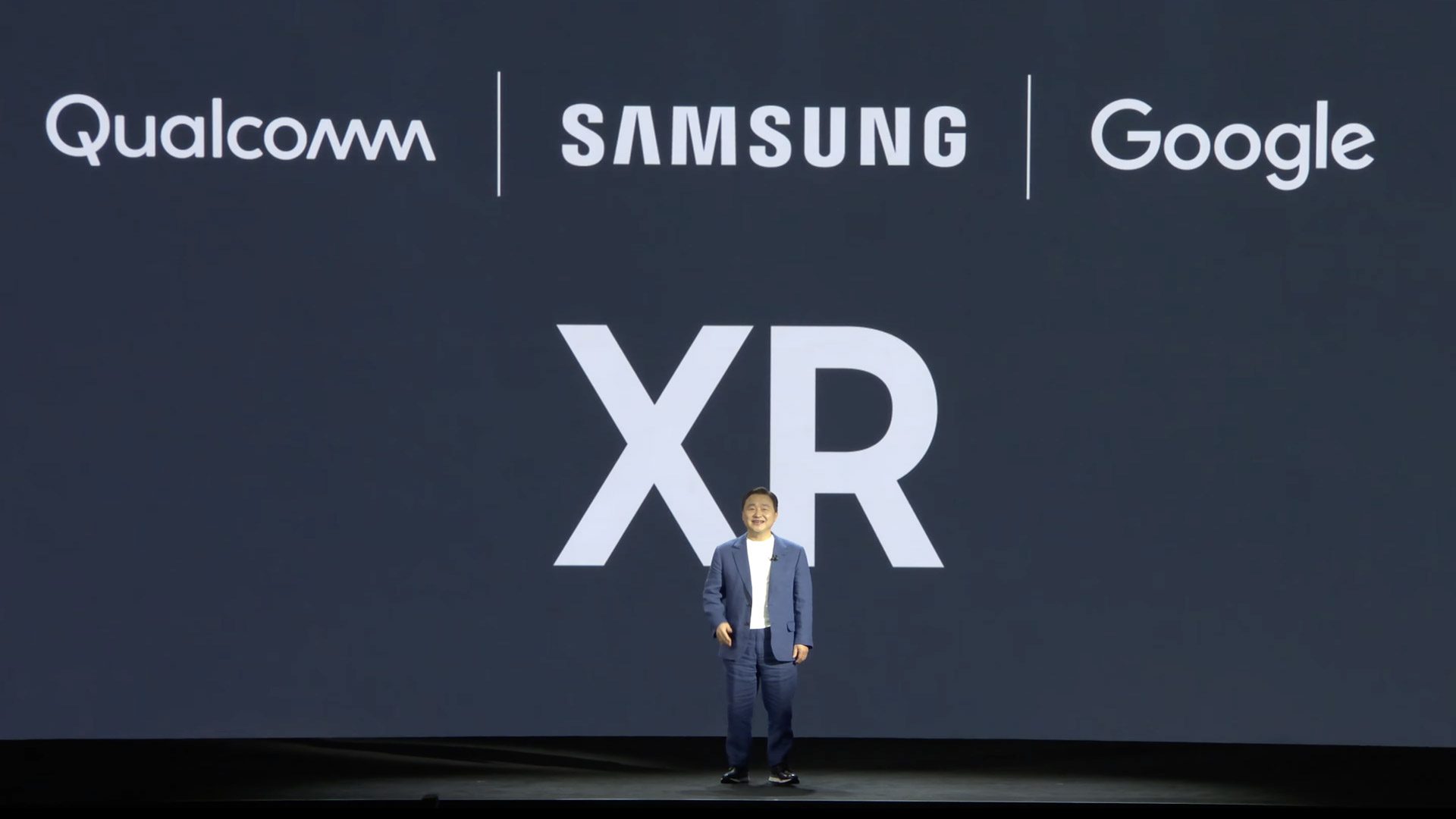- Magic Beans
- Posts
- AI is coming for your job
AI is coming for your job
Can ‘Universal High Income’ save us from the AI robot apocalypse?

Announcing visionOS Usability Testing Services
I'm excited to announce that visionOS Dev Partners now offers usability testing services for Vision Pro. This new offering connects developers with a diverse network of Vision Pro owners, providing authentic user feedback that's impossible to simulate.
By observing how real users interact with your app, we can uncover critical insights to improve your spatial UI. Our service includes expert visionOS design consultation and transforms raw feedback into a comprehensive, actionable improvement plan.
Can ‘Universal High Income’ save us from the AI robot apocalypse?
AI is coming for your job, and no one is safe.
I'm not saying this to scare you, but to urge you to start preparing for this future now.
AI isn't just automating tasks - it's rewriting the rules of our economy, capitalism, and how we find meaning as humans.
If it can be automated, it will be.
Five years ago, I saw Andrew Yang warn of the AI job apocalypse. As a tech-savvy early supporter, I intuitively understood his vision.
At that time, the future he spoke about felt abstract – possibly decades away. Siri and Alexa were more often the butt of jokes than formidable tools to get work done. Using AI was simply not a big part of my daily life.
Looking back, I see now why his message didn't take root – he was just a little too early.
Fast forward to 2022: ChatGPT drops, and suddenly AI is writing emails, researching, and generating images. Now in 2024, AI replacing most jobs doesn't seem so far-fetched.
Jensen Huang's words at Computex 2024 haunt me:
Everything is going to be robotic. All of the factories will be robotic, the factories will orchestrate robots, and those robots will be building products that are robotic. Robots interacting with robots, building products that are robotic.
That's all cool and all, but what's left for humans in this world dominated by machines? What's the plan?
We hear Universal Basic Income floated by tech visionaries as something we maybe kinda should do…at some point.
In the past year, Elon has hyped up his take on UBI, Universal High Income, which is like UBI... only betterer. And no, this is not UBI for getting high. Here's Elon's pitch:
In the future, there will be universal high income, not basic. In a positive AI future, [there will be] no scarcity except that which we define to be scarce. In that scenario, everyone can have whatever goods and services they want, and it is less clear how we will find meaning in a world where work is less optional.
The premise? AI and automation will produce everything we could ever want, making jobs optional and ushering in an AI-enabled golden age.
The optimist in me gets excited about robots doing all the soul-crushing work. Let's face it, most humans don't dream of scooping beans into burritos at Chipotle all day.
But the cynic in me remembers this vision comes from a man who's in the business of automating as many jobs as possible through humanoid robots and robotaxis.
Even if robots could do everything, who's to say all this surplus would trickle down to the rest of us?
We already have the resources to solve poverty, hunger, and homelessness. Would a society with advanced AI really improve things, or is my thinking constrained by our current paradigm?
Our jobs and lifestyles are no longer guaranteed. We're entering an era where everything's up for grabs.
Breathe in. Breathe out.
Everything is fine… right?
Sponsored
Your Brilliant Business Idea Just Got a New Best Friend
Got a business idea? Any idea? We're not picky. Big, small, "I thought of this in the shower" type stuff–we want it all. Whether you're dreaming of building an empire or just figuring out how to stop shuffling spreadsheets, we're here for it.
Our AI Ideas Generator asks you 3 questions and emails you a custom-built report of AI-powered solutions unique to your business.
Imagine having a hyper-intelligent, never-sleeps, doesn't-need-coffee AI solutions machine at your beck and call. That's our AI Ideas Generator. It takes your business conundrum, shakes it up with some LLM magic and–voila!--emails you a bespoke report of AI-powered solutions.
Outsmart, Outpace, Outdo: Whether you're aiming to leapfrog the competition or just be best-in-class in your industry, our custom AI solutions have you covered.
Ready to turn your business into the talk of the town (or at least the water cooler)? Let's get cracking! (And yes, it’s free!)
Magic Beans of the Week
Neuralink's livestream update last week showcased jaw-dropping progress in brain-computer interface technology. Their first patient, Nolan, demonstrated mind-control of computers, playing Civilization VI while livestreaming - all through thought alone. Even more impressive, Nolan shattered the previous world record for cursor control on his first day using the device, and has since doubled that performance.
This wireless, inductively-charged device is already used up to 70 hours weekly, with Neuralink pushing to improve its capabilities even further. Elon Musk's vision extends beyond medical applications to "superpowers" like faster-than-typing communication and "conceptual telepathy". The team's scaling up rapidly, aiming for thousands of users in the coming years and devices with 3,000 channels, up from the current 64.
While technically impressive and potentially life-changing for those with neurological conditions, this technology raises profound questions. As impressive as these achievements are, I'll admit - I'm not a transhumanist. I'm both intrigued and concerned. How will this affect inequality, privacy, and human autonomy?
What's your take? Are you excited about this new frontier, or does it make you uneasy? How do we balance progress with caution in this brave new world?
Bounce Arcade, launching this fall on Quest, offers a clever twist on pinball that's uniquely suited for VR. The game's premise is brilliant - instead of playing a virtual pinball table, you're inside the machine, using your fists as paddles. It's not just conceptually interesting; from the early footage, it looks genuinely fun too.
Ben Lang points out that this VR-native approach to game design is crucial for the medium's growth. Just as Pong and Pac-Man established core mechanics for flat-screen gaming, VR needs its own set of foundational gameplay elements. Bounce Arcade joins titles like Beat Saber and Gorilla Tag in creating experiences that simply wouldn't work outside of VR.
While it's an arcade-style game now, it's easy to imagine how this core mechanic could evolve into more complex VR experiences in the future. Are you excited to try this fresh take on pinball?
Samsung and Google have confirmed their collaborative "XR platform" with Qualcomm will be unveiled this year, potentially launching by the end of 2024. This announcement comes in the wake of Apple's Vision Pro reveal, suggesting a strategic reassessment by the trio.
At Samsung Unpacked, executives teased "next-generation experiences" and an "exciting new era in mobile computing." But the exact nature of their XR offering remains unclear. Will it be a Quest competitor, a productivity-focused device like Vision Pro, or perhaps AR glasses?
Interestingly, both Google and Samsung have previous, unsuccessful forays into VR (remember Cardboard, Daydream, and Gear VR?). This new collaboration seems to signal a more serious, unified approach.
As the XR landscape becomes increasingly competitive, what are your hopes for this new platform? How do you think it will stack up against existing offerings from Meta and Apple?
EvolutionaryScale's new ESM3 model is a game-changer in protein design. With 98 billion parameters, it can simulate millions of years of evolution in moments.
Key points:
Created a novel Green Fluorescent Protein variant in seconds (would take nature 500 million years)
Applications in drug discovery, environmental sustainability, and materials science
$142 million in funding, partnerships with AWS and NVIDIA
While AI raises valid concerns, ESM3 showcases its potential to accelerate scientific breakthroughs addressing critical global challenges. It's a prime example of AI's positive impact on humanity.
Senators Manchin and Murkowski's bill aims to advance U.S. AI capabilities through the DOE and its National Labs. Key features:
FASST Initiative: Driving AI advancements within DOE
AI Research Clusters: Network of centers at National Labs ($30M/year each)
R&D Program: Focusing on data, computing infrastructure, AI models, and applications
Safety Measures: Evaluating and mitigating AI risks
Strategic Planning: Goals for AI in science, energy, and security
This bipartisan effort leverages existing DOE infrastructure to keep the U.S. competitive in AI, particularly in energy and national security sectors.
Thank you for reading. Till next week! 😊
Best,
Cosmo







